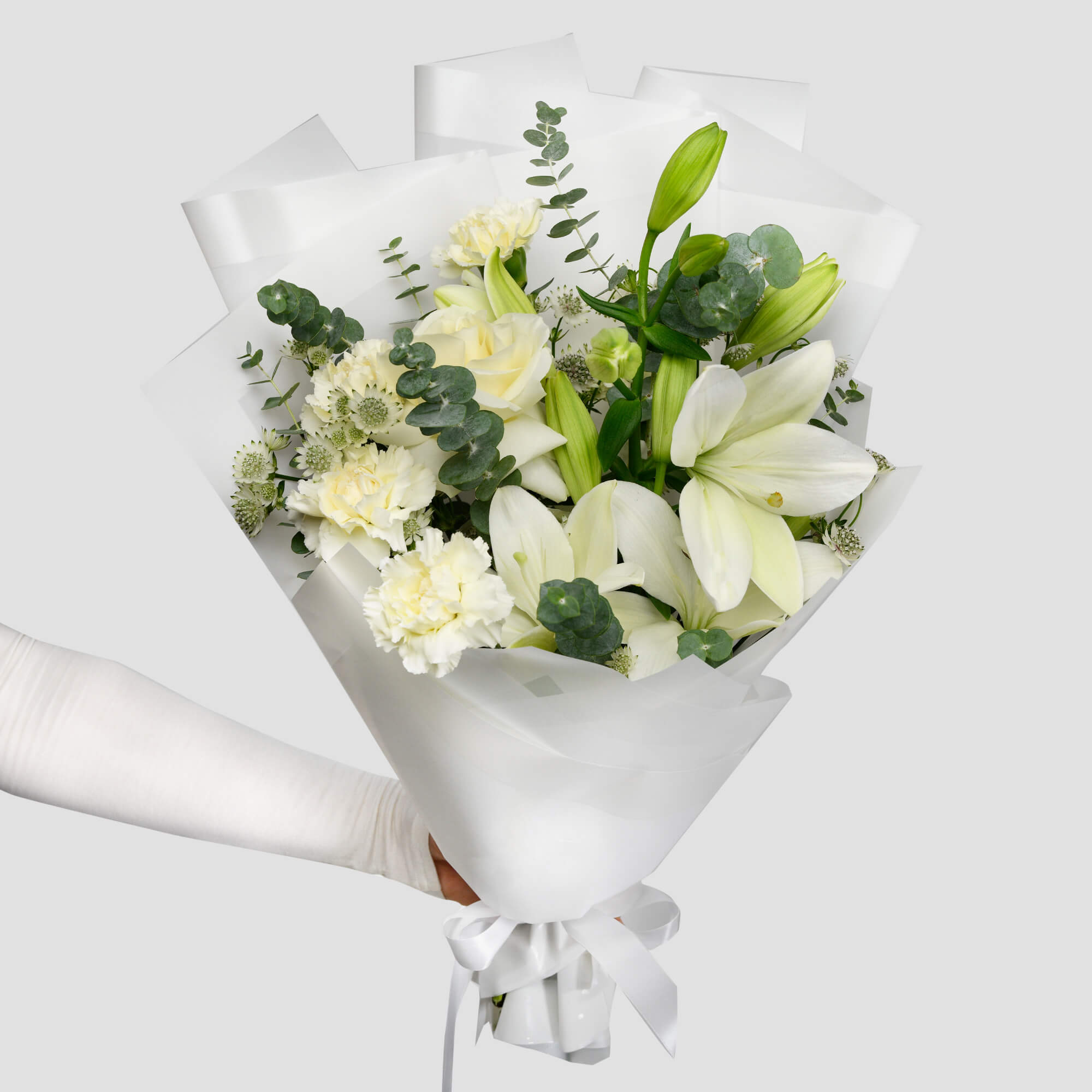Benefits of Aloe Vera - here's how this medicinal plant can improve your health
Aloe vera plants are easy to grow and maintain, but when it comes to their properties, these plants can do more than give personality to a living space. The leaves of an aloe vera plant contain a soft, transparent gel that has been praised for its healing properties for centuries. But how is this miracle plant used today?

This article provides a complete perspective on the health benefits of the aloe vera plant. At the same time, at the end, you will be able to find precautions in using the plant in different forms or products.
content
- What is aloe vera? Aloe vera properties and products
- Aloe vera - benefits for skin, complexion and hair
- What other health benefits can aloe vera have?
-
Aloe vera precautions and contraindications
1. What is aloe vera? Aloe vera properties and products
Known as the "Plant of Immortality" in Ancient Egypt, aloe vera has been used for centuries as a natural remedy with beneficial health properties. Under the thick outer layer of the plant, inside its tissue appears in the form of a transparent gel, with a viscous consistency. This remarkable healing substance is around 95% water, the remaining 5% containing high levels of vitamins, minerals, antioxidants and amino acids.
In conventional medicine, aloe vera is used as a topical gel - obtained from the substance secreted inside. It is also possible to apply the gel to the affected area directly from the leaves of the plant, after they have been detached and cut in advance.
Currently, there are approximately 420 different species of aloe vera. However, the most common species, used to treat various skin problems and more, is Aloe Barbadensis Miller . Aloe vera from non-prescription products, such as medicinal gels, is derived from plants with the same name. Aloe gel can also contain other ingredients for soothing the skin, such as echinacea and calendula, being an effective remedy especially for burns and minor wounds.
You can find derivatives of this additive substance full of nutrients in moisturizing creams, shower gels, shaving creams and sun protection creams. However, the pulp found inside, cold pressed, is said to bring the most benefits.
Regarding the use, the substance from aloe vera can be used both internally and as a topical application (external application, usually on the skin). Before taking any herbal supplement or integrating a product derived from aloe vera (gel, creams, drinks) to treat a medical problem, it is recommended to consult a specialist beforehand.
- Aloe vera - benefits for skin, complexion and hair

Aloe vera has anti-inflammatory, antibacterial and antioxidant properties. Here's how these properties turn into real benefits when it comes to the health of the skin, complexion, and hair:
- Deeply hydrates the skin
Besides the fact that aloe vera contains a significant proportion of water, it is also rich in electrolytes such as magnesium and potassium that contribute to the optimal hydration of the skin. It should be remembered that many of the benefits of aloe vera are found in the pulp, which makes it suitable for use in daily skin care. In particular, aloe vera gel contains bioactive compounds known as polysaccharides that increase the skin's ability to retain moisture, keeping it supple for a longer period of time. That is precisely why it is recommended to use aloe vera to keep your skin hydrated even in harsh climate conditions - very cold days or hot, dry days.
- Maintains hair and scalp health
At the same time, thanks to its anti-inflammatory properties, aloe gel can be gently massaged into the scalp when you wash your hair. Aloe substances will help restore the pH balance, which will implicitly stimulate hair growth. Hair care products (shampoo, conditioner, hair mask) containing aloe vera gel have an indisputable role in optimal hair hydration. Thus, your hair will retain more beneficial substances, and this fact will translate into well-hydrated hair, strong capillaries and a healthy scalp.
- Soothes the inflammation caused by sunburn
This is probably one of the oldest uses of the aloe vera plant. Due to its light and refreshing texture, aloe vera gel can be applied to the skin in the case of mild sunburns, giving a feeling of comfort to the skin. Specialized studies have found a connection between the use of the plant and the healing of first and second degree sunburns. It has been shown that this is largely due to the fact that the aloe plant contains glucomannan, a compound with regenerative properties, which fights inflammation in the skin. At the same time, aloe vera is known for soothing the burning sensation of the skin after epilation or shaving.
- It is a first aid in case of cuts or small abrasions
The vitamins, amino acids, minerals and enzymes present in the aloe gel can repair damaged tissues and speed up the healing time in the case of minor wounds or infections. So, if you have had small incidents that resulted in small scratches or abrasions on the skin, consider using a medical product with aloe vera as a first aid. An aloe vera spray can be used to disinfect the wound in the absence of other antibacterial substances. At the same time, applying an aloe vera gel up to 3 times a day can speed up the wound healing process, minimizing at the same time the risk of developing scars on the skin.
- "Cure" against skin aging
Aloe vera is a very common ingredient in skin care products, especially skin products. This fact is mainly due to its moisturizing and anti-aging agents that the plant possesses: the sterols in aloe vera stimulate the production of collagen and hyaluronic acid that ensure an optimal level of skin hydration. That's why applying a moisturizing cream daily can fight the appearance of premature wrinkles and can improve the elasticity of the skin of the face. In addition, the nutrients in aloe can improve the damage caused by ultraviolet (UV) radiation, which is responsible for the visible signs of skin aging.
- Fights acne
Due to its anti-inflammatory properties, aloe vera is considered an effective natural treatment for acne. Research in the field shows that substances from the plant calm and reduce the manifestations of inflammatory acne. It can also help fade scars caused by acne. However, aloe vera should not be applied directly to the inflamed areas, in case of a strong eruption. It is recommended to apply a small amount on pimples or less irritated areas and follow a treatment given by the dermatologist.
- Improves skin conditions
The anti-inflammatory effects of aloe vera gel have also proven beneficial in the treatment of skin diseases, such as psoriasis and eczema. Applying creams containing a small amount of aloe extract can reduce the unpleasant manifestations of psoriasis such as redness and peeling of the skin. However, it should be noted that these products are more effective when used together with a dermatological treatment prescribed by a doctor.
Aloe vera gel can also help relieve symptoms caused by skin eczema. Last but not least, the antibacterial and antifungal properties of this plant can help prevent rashes in patients suffering from atopic dermatitis.
- What other health benefits can aloe vera have?
Substances from aloe vera plants can have a favorable effect in treating several health problems. Here are some of them.
- It can be used to lower blood pressure
Arterial hypertension is a condition that leads to the deterioration of blood vessels over time, which increases the risk of a stroke or heart attack. It is important to state that aloe vera does not replace a balanced lifestyle (supported by physical exercises and a healthy diet), but it can be used as a complementary therapy in the case of this type of ailments.
In a study conducted on people with diabetes, it was discovered that aloe vera powder can contribute significantly to reducing blood pressure. Scientists mainly point to the role of two components with anti-inflammatory properties - aloe-emodin and aloin - contained in this plant, in obtaining these encouraging results.
- Contributes to the stabilization of blood sugar
Also, there is more and more scientific evidence that validates the effect of the aloe vera plant on blood sugar levels. Thus, when it is used as a food supplement (administered orally in the form of juice, extract or powder) aloe vera can improve the glycemic index in some cases in people with prediabetes and type 2 diabetes. The researchers concluded that this effect due to the ability of the plant to reduce the absorption of glucose from the gastrointestinal tract. This fact will result in the reduction of glucose production, which will be more easily assimilated by the body.
- It can improve oral health
The aloe vera plant also has a lesser-known benefit: improving the health of the gums and teeth. Aloe vera mouthwash will not only freshen your breath, but it will reduce plaque deposits as effectively as chlorhexidine mouthwashes (prescribed to treat gum diseases such as gingivitis or periodontitis). At the same time, you can try a toothpaste based on aloe vera gel. It is effective in combating the bacteria that cause caries. These results suggest that oral care products based on aloe vera can be a reliable alternative to established products.
- It helps to maintain the health of the digestive system
Aloe vera contains 8 important enzymes, 2 of which specifically support digestion - amylase which breaks down carbohydrates on the one hand, starch, sugars, lipase which helps digest fats on the other. At the same time, the calming effects of the plant can help facilitate intestinal transit. This miraculous plant also contains prebiotics, nutrients that feed the healthy colonies of probiotics that live in all areas of the digestive system. A healthy gut will stimulate the absorption of nutrients which, in turn, will improve the overall health of the body.
- Aloe vera precautions and contraindications
In general, aloe vera and products based on this ingredient are considered safe when used as directed. However, dietary supplements are generally not regulated by a national authority. This fact means that using aloe vera and reporting any adverse reactions to your doctor is the responsibility of the consumer.
In general, it is good to avoid aloe vera products if you are allergic to plants from the "Liliaceae" family. These include: onions, garlic, tulips, lilies, etc.
Certain aloe vera extracts can cause hives or swelling on the skin if you are allergic to them. We recommend that you do a test by applying a thin layer on the jawline and observe if there are signs of irritation. Some users may experience slight stinging or burning as the aloe vera is absorbed into the skin. However, if you experience a rash or hives, you may be sensitive to the gel and should stop using it.
Also, avoid applying aloe vera to serious burns, deep wounds, or post-operative wounds.
Do not use aloe vera gel on infected skin. While the gel has undeniable microbial properties, its protective layer can disrupt the healing process and aggravate the existing infection.
In the case of juices or ingestible food supplements based on aloe vera, caution is recommended, as it can have a strong laxative effect. Ingestion in large quantities can thus cause abdominal cramps, diarrhea, potassium deficiency and kidney damage.
Therefore, aloe vera is widely known for its indisputable medicinal properties. That's why it's an inspired idea to have an aloe vera plant in your home and enjoy the benefits it can offer you.
Photo source: freepik.com.
Flower delivery Bucharest with home delivery
Flower delivery Brașov for fresh flowers and fast delivery






























